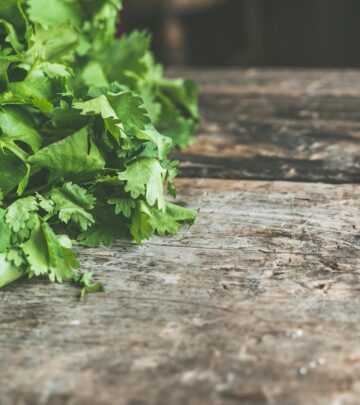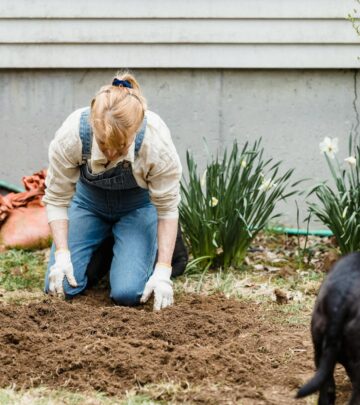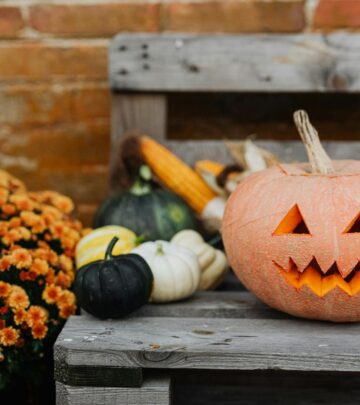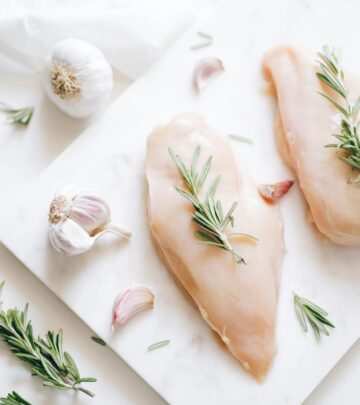Best Fruit Trees to Plant in Tennessee: 8 Top Picks
A diverse lineup of home orchard varieties promises sweet, seasonal yields all year long.
Best Fruit Trees to Plant in Tennessee Yards or Gardens
With mild winters, warm summers, and an annual rainfall spread evenly across the seasons, Tennessee offers one of the most favorable environments for home orchards in the United States. Stretching between USDA Hardiness Zones 5b and 8a, both new and seasoned gardeners can reap the rewards of abundant and diverse fruit harvests in their backyards.
Contents
- Why Tennessee Gardens Are Ideal for Fruit Trees
- Apple Trees in Tennessee
- Peach Trees Prospects
- Pear Trees in Tennessee
- Plum Trees and Varieties
- Cherry Trees: Picking the Right Type
- Persimmon & Pawpaw: Unique Southern Options
- Figs, Berries, and Other Fruitful Choices
- General Tips for Fruit Tree Success
- FAQs
Why Tennessee Gardens Are Ideal for Fruit Trees
Gardeners in Tennessee benefit from a temperate climate with no wild extremes. Winters are generally cool but rarely harsh, while summers are warm without consistent scorching heat. The result: a fruit-growing environment that provides:
- Sufficient chill hours for tree dormancy and fruiting—for apples, pears, and more.
- Ample rainfall to keep soils moist and support healthy development without extensive irrigation.
- Warm growing seasons to mature fruit to full flavor and sweetness.
This climate profile means a wide range of common and specialty fruit trees can flourish with only modest effort.
Apple Trees in Tennessee
Apples remain the staple of Tennessee home orchards, valued for their versatility, beautiful spring blossoms, and wide adaptability. Tennessee’s climate—mild winters with average temperatures near 40°F—delivers the 500–600 required chill hours that many apple varieties need to set fruit.
Benefits of Growing Apples in Tennessee
- Reliable cropping year after year with proper chill hours
- Low-maintenance once established, needing moderate water
- Excellent pollinator and companion for many other garden trees
Top Apple Varieties for Tennessee
| Variety | Best For | Notes |
|---|---|---|
| Granny Smith | All-rounder, baking & eating | Thrives in USDA Zones 6-9, low chill hour requirement (400 hours), self-pollinating |
| Gala | Early harvest, fresh eating | Sweet flavor, good disease resistance, requires cross-pollination |
| Honeycrisp | Crisp texture, juicy flavor | Popular in home gardens, needs proper chilling, prefers slightly colder winters |
| Arkansas Black | Long storage, pies | Dense, tart flesh; adapts well to Tennessee’s climates |
Growing Tips for Apples
- Choose a sunny spot with well-drained soil
- Water regularly during establishment, then transition to less frequent deep watering
- Support young trees with stakes to promote upright growth
- Annual pruning after planting and during dormancy to develop strong structure and encourage fruit production
- Provide at least two varieties for cross-pollination unless using self-pollinating types
Peach Trees Prospects
Peach trees produce sweet, juicy fruit and are a beloved choice for southern gardeners. They prefer USDA Zones 5–8, making most of Tennessee ideal for peache cultivation.
Key Considerations
- Spring frost can threaten blossoms, so choose late-blooming varieties if late freezes are likely
- Offer excellent heat and humidity tolerance but require full sun
- Thin fruit in early summer for larger, healthier peaches
Recommended Varieties
- Redhaven – Reliable, early-bearing, excellent flavor
- Elberta – Classic southern peach, vigorous growth
- Contender – Cold-hardy, late-blooming, resists frost damage
Pear Trees in Tennessee
Pears are another easy-care fruit ideal for Tennessee’s moderate climate, offering beautiful flowers and crisp, flavorful fruit. They are less susceptible to pests and diseases common in southern climates.
- Perform well in Zones 5–8, ideally suited for central and western Tennessee
- Choose disease-resistant varieties such as Kieffer, Bartlett, and Moonglow
- Self-pollinating types available, but cross-pollination often improves crop
Plum Trees and Varieties
Plum trees can provide a bountiful harvest with their distinctively tangy, sweet fruit. Japanese and American hybrid plums generally perform best in Tennessee due to their adaptability and disease resistance.
Tips for Success
- Plant in a location with full sun and airflow to prevent disease
- ‘Methley’ (Japanese) and ‘AU-Rosa’ (hybrid) are among the strongest choices for Tennessee
- Require a compatible pollinator of a different variety for best fruit set
Cherry Trees: Picking the Right Type
Cherries need a bit more attention, as sweet cherries require long, cold winters that are rare in most of Tennessee, whereas sour and bush cherries are a better fit.
- Choose tart (sour) varieties like Montmorency or Nanking for consistent results
- Ensure plantings are in full sun and protected from standing water
- Provide cross-pollination if required
Persimmon & Pawpaw: Unique Southern Options
For something a little bit different, try native and unique southern fruit trees such as persimmons and pawpaws:
- American Persimmon is native, hardy, and produces sweet, complex fruit after frost. Little maintenance required once established.
- Pawpaw is North America’s largest native fruit. It offers a custard-like texture and tropical flavor, best suited to forest edges and partial shade.
- Both are well adapted to Tennessee’s woodlands and wild gardens.
Figs, Berries, and Other Fruitful Choices
Don’t overlook figs and berries when designing your Tennessee orchard:
- Figs (such as ‘Celeste’ and ‘Brown Turkey’) are well suited to middle and southern Tennessee, thriving in full sun and tolerating some drought.
- Blueberries, blackberries, and raspberries all thrive in Tennessee’s rich soils, with new thornless varieties making harvesting a breeze.
- Pomegranates and mulberries can also be grown in warmer areas or protected sites.
The Sugar Apple – A Special Mention
Though not native to Tennessee, the Sugar Apple (Sweetsop) is a tropical-leaning fruit tree gaining attention among gardeners. While it prefers warm, frost-free conditions, those in Tennessee with greenhouses or who grow in large containers can still enjoy its custardy, sweet fruit by moving the plant indoors during cooler months.
General Tips for Fruit Tree Success in Tennessee
- Select the right site: Choose locations with full sunlight (at least 6–8 hours per day) and well-drained soil. Avoid frost pockets.
- Soil Preparation: Amend heavy clay soils with organic matter to improve drainage. Adjust pH to optimal range (usually 6.0–6.8).
- Spacing: Give each tree enough room for air circulation and mature height. Refer to specific tree guides for spacing recommendations.
- Watering: New plantings need regular moisture until roots are well established. Mature trees generally cope well with rainfall but benefit from deep watering during droughts.
- Mulching: Apply mulch beneath the drip line to conserve moisture, prevent weeds, and protect roots from temperature extremes.
- Fertilizing: Most fruit trees thrive with annual applications of compost and slow-release balanced fertilizer.
- Pruning: Train young trees for strong frameworks. Prune during dormancy for shape and to remove diseased or crossing branches.
- Watch for diseases & pests: Monitor for common problems (fire blight in apples/pears, scale on plums) and follow integrated pest management practices.
Frequently Asked Questions (FAQs)
Q: What is the best time to plant fruit trees in Tennessee?
A: Fall and early spring are the ideal times for planting, as trees are dormant and less stressed by heat or drought.
Q: Do I need more than one fruit tree for pollination?
A: Many varieties benefit from a second compatible tree for better fruit set, except self-pollinating types like some apples (e.g., Granny Smith), peaches, and figs.
Q: How much watering do young trees need?
A: Water new plantings thoroughly at least once a week during dry periods; mature trees usually need less frequent water unless there is a drought.
Q: Can I grow tropical fruits like sugar apples in Tennessee?
A: While sugar apples prefer tropical weather, they can be grown in containers and brought indoors during cold weather to fruit successfully.
Q: Which fruit trees are the most low-maintenance for beginners?
A: Pears, figs, and some apples are among the most forgiving and easy to grow for Tennessee beginners.
Conclusion
From classic apples and peaches to unique local favorites like pawpaws and persimmons, Tennessee’s gardeners enjoy an extraordinary range and abundance of fruit trees. By selecting hardy varieties and following sound care practices, you can look forward to years of delicious, homegrown harvests—right in your own backyard.
References
Read full bio of medha deb















Community Experiences
Join the conversation and become a part of our empowering community! Share your stories, experiences, and insights to connect with other beauty, lifestyle, and health enthusiasts.